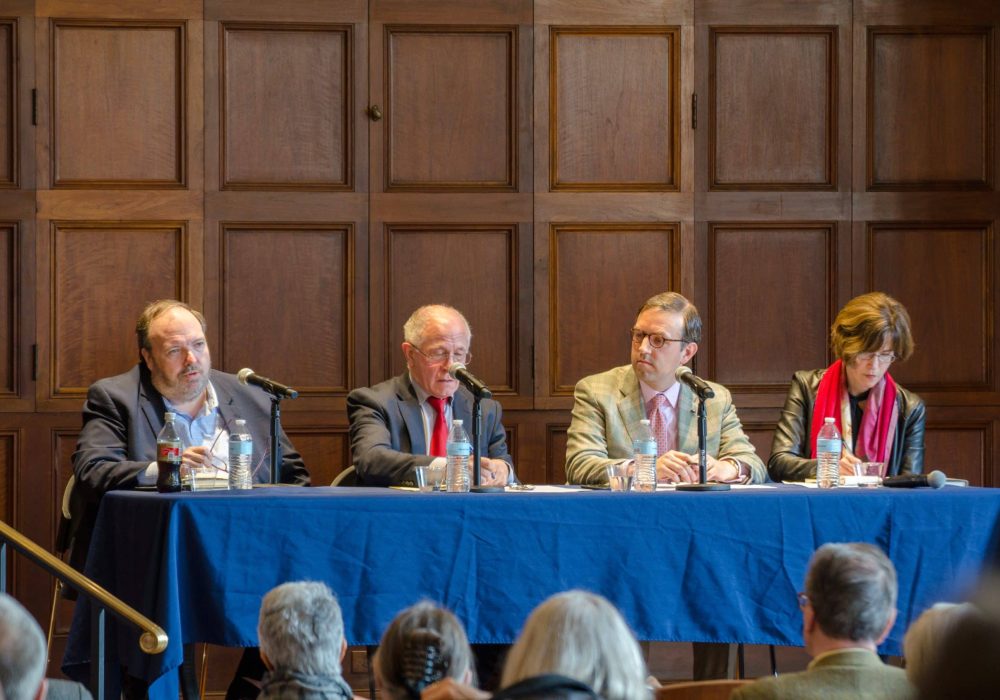Listen to the symposium as a podcast episode. You can subscribe to the Lumen Christi Institute Podcast via our Soundcloud page, iTunes channel, Stitcher, TuneIn, ListenNotes, Podbean, Pocket Casts, and Google Play Music.
To view photos of the symposium, visit Lumen Christi’s Facebook page.
Free and open to the public. Persons with disabilities who may need assistance should contact us at 773-955-5887 or by email. Copies of the book will be available for sale by the Seminary Coop Bookstore at the event.
ABOUT THE BOOK
Looking at leading philosophers and political theologians—among them Joseph de Maistre, Alexis de Tocqueville, and Charles Péguy—Perreau-Saussine shows how the Church redefined its relationship to the state in the long wake of the French Revolution.
Disenfranchised by the fall of the monarchy, the church in France at first embraced that most conservative of ideologies, “ultramontanism” (an emphasis on the central role of the papacy). Catholics whose church had lost its national status henceforth looked to the papacy for spiritual authority. Perreau-Saussine argues that this move paradoxically combined a fundamental repudiation of the liberal political order with an implicit acknowledgment of one of its core principles, the autonomy of the church from the state. However, as Perreau-Saussine shows, in the context of twentieth-century totalitarianism, the Catholic Church retrieved elements of its Gallican heritage and came to embrace another liberal (and Gallican) principle, the autonomy of the state from the church, for the sake of its corollary, freedom of religion. Perreau-Saussine concludes that Catholics came to terms with liberal democracy, though not without abiding concerns about the potential of that system to compromise freedom of religion in the pursuit of other goals.

